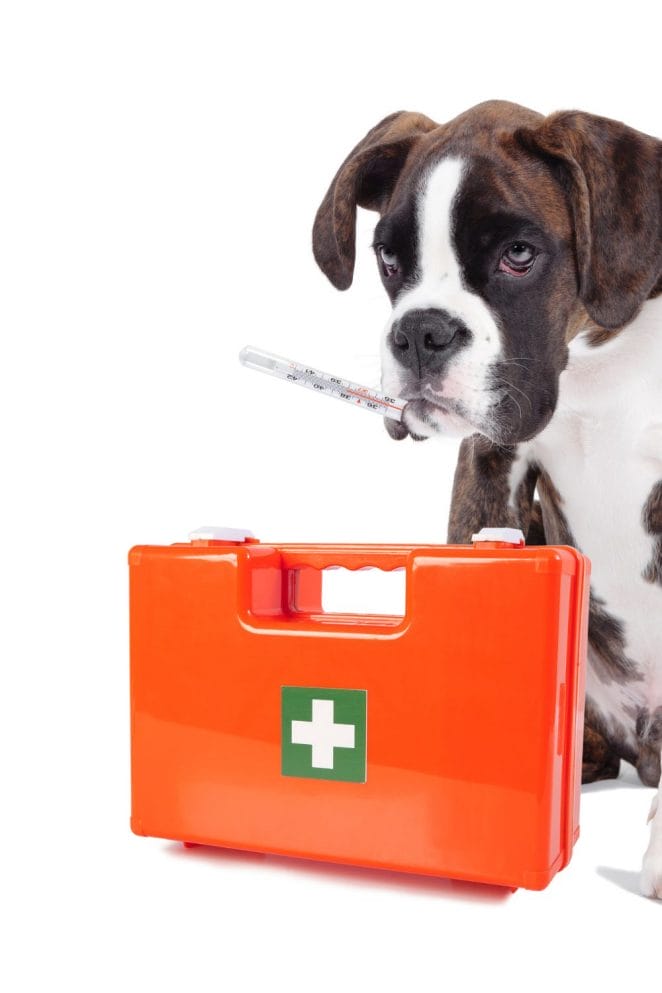
Home remedies for dog cough can be as distressing for owners as for pets.
Much like humans, dogs can suffer from coughing due to a variety of reasons, ranging from minor irritations to more serious health issues.
While a vet visit is always recommended for persistent or severe coughs, several home remedies can help alleviate your dog’s discomfort.
This post will explore the causes of coughing in dogs, provide effective home remedies, discuss dietary considerations, and answer common questions about managing a dog’s cough at home.
Why Cough in Dogs Happens
Coughing in dogs can be triggered by various factors, and identifying the underlying cause is crucial for effective treatment.
Some common reasons for a dog’s cough include:
Kennel Cough
A highly contagious respiratory disease, kennel cough is often contracted in places where many dogs congregate, such as kennels, dog parks, and grooming facilities. It is characterized by a dry, hacking cough.
Allergies
Dogs can be allergic to various environmental factors such as pollen, dust, mold, or certain foods.
Allergies can cause a persistent cough due to throat and respiratory tract irritation.
Infections
Bacterial, viral, or fungal infections can lead to coughing. Conditions like canine influenza or pneumonia require medical attention but can initially present with coughing.
Heart Disease
Heart conditions, especially in older dogs, can lead to coughing due to fluid buildup in the lungs or pressure on the respiratory tract.
Foreign Objects
Dogs are curious creatures and may inhale or swallow foreign objects that can cause irritation or blockage in the throat, leading to coughing.
Collapsing Trachea
This condition is common in small breeds and results from the weakening of the tracheal rings, causing a persistent cough that worsens with excitement or exertion.

Home Remedies for Dog Cough
When your dog starts coughing, there are several home remedies you can try to provide relief:
Honey
Honey has natural antibacterial properties and can soothe a dog’s throat. Give your dog a teaspoon of honey (for small dogs) or a tablespoon (for larger dogs) up to three times a day.
Humidifier
Adding moisture to the air can help ease your dog’s cough, especially if it’s caused by dry air or respiratory irritation. Place a humidifier near your dog’s sleeping area.
Steam Therapy
Steam can help loosen mucus and soothe the respiratory tract. Take your dog into the bathroom while you run a hot shower, allowing them to inhale the steam for about 10-15 minutes.
Coconut Oil
Coconut oil has antimicrobial properties and can boost the immune system. Add a teaspoon to your dog’s food daily.
Herbal Teas
Teas made from herbs like liquorice root, marshmallow root, and slippery elm can help soothe a dog’s throat. Make sure the tea is cooled down before offering it to your dog.
Proper Hydration
Ensure your dog stays well-hydrated. Offer plenty of fresh water and consider giving them ice chips to lick if they seem reluctant to drink.
Rest
Just like humans, dogs need rest to recover from illness. Ensure your dog has a comfortable and quiet place to rest.
Diet to Take Care Of

A balanced and nutritious diet plays a crucial role in maintaining your dog’s overall health and immune system, which can help prevent and manage coughs.
Here are some dietary tips:
High-Quality Protein
Ensure your dog’s diet includes high-quality protein sources such as chicken, beef, or fish to support immune function and muscle health.
Antioxidant-Rich Foods
Include foods rich in antioxidants like blueberries, spinach, and carrots. These can help boost the immune system and fight off infections.
Omega-3 Fatty Acids
Omega-3s found in fish oil can reduce inflammation and support respiratory health. Consider adding fish oil supplements to your dog’s diet.
Hydration-Rich Foods
Wet foods or broths can help keep your dog hydrated and soothe their throat.
Avoid Allergens
If your dog has food allergies, ensure their diet is free from common allergens such as wheat, soy, or certain proteins.
An elimination diet can help identify and avoid these triggers.
Conclusion
Caring for a dog with a cough can be challenging, but with the right home remedies and dietary adjustments, you can help alleviate their discomfort and support their recovery.
Always monitor your dog’s symptoms closely and consult your veterinarian if the cough persists or worsens.
By understanding the causes and implementing effective home remedies, you can ensure your furry friend stays healthy and happy.

FAQs with Answers
If your dog’s cough is persistent, accompanied by other symptoms such as lethargy, loss of appetite, difficulty breathing, or if they cough up blood or have a fever, it is important to consult a veterinarian immediately.
No, you should never give your dog human cough medicine without consulting your veterinarian. Many human medications contain ingredients that are toxic to dogs.
If your dog’s cough does not improve within a few days of using home remedies, or if it worsens, it’s best to consult your veterinarian. Immediate veterinary care is recommended for severe symptoms.
Yes, small breeds like Pomeranians, Chihuahuas, and Toy Poodles are more prone to conditions like collapsing trachea which can cause chronic coughing.
Yes, a nutritious and balanced diet can support your dog’s immune system and overall health, potentially reducing the frequency and severity of coughs. Ensure your dog’s diet includes high-quality proteins, antioxidants, and omega-3 fatty acids.


GIPHY App Key not set. Please check settings